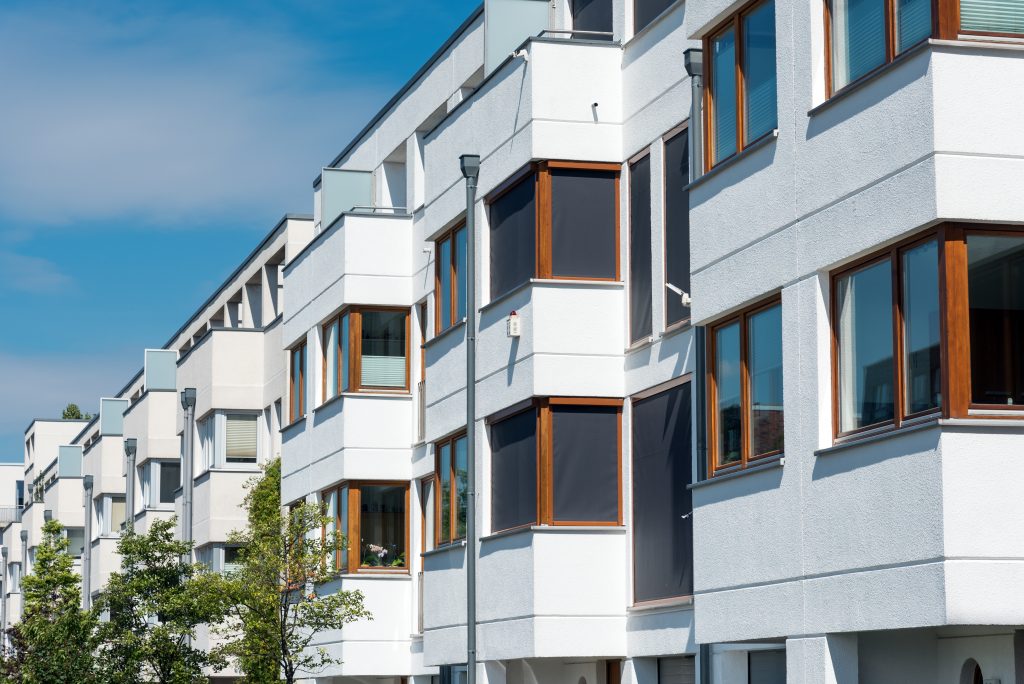Are you caught in the perennial debate of a condo vs apartment? It’s a question that haunts many prospective homebuyers and renters. This comprehensive guide will help you navigate the differences and similarities, pros and cons, and suitability of each housing option. Your journey to informed decision-making begins here.
Condo vs. Apartment: What’s the Difference?
So, what separates a condo from an apartment? To an onlooker, both might appear as modern buildings with multiple residential units. However, ownership is what distinguishes them significantly.
A condo, short for condominium, is a property that you can buy and own outright. It’s like an apartment that you own. On the other hand, an apartment is typically a rental property owned by a landlord or a property management company.
Condos often come with added luxuries such as swimming pools, gyms, and other amenities, depending on the building’s community association. These may increase the total cost but provide added value for the homeowner.
In contrast, apartments might not boast such luxuries. However, they offer flexibility as you can move after your lease expires, a perfect option if you prefer short-term commitments.
What to Consider
Choosing between a condo and an apartment isn’t simply about preferences; several factors come into play:
- Budget: Condos are generally more expensive because you’re buying property, not just renting. In 2022, the median sales price for a condo in the US was about $319,200, a significant figure compared to average apartment rents.
- Maintenance: In condos, you’re typically responsible for maintenance inside your unit. In apartments, this is often the responsibility of the landlord or property management.
- Investment Potential: A condo can be a valuable asset, appreciating over time. An apartment does not provide this opportunity.
- Lifestyle and Amenities: Consider your lifestyle and the amenities you desire. Condos often offer more, but at a cost.
Who is a Condo Best For?
Condos are ideally suited for individuals who seek a sense of ownership and community, with an inclination towards a more luxurious lifestyle. If you’re financially stable and desire to invest in real estate, a condo might be your best bet. It also fits those who wish to customize their living space to suit personal tastes and this steps how to buy condo in 2023.
Condo Pros
Here’s why a condo might appeal to you:
- Ownership: You own your unit, so it’s an investment that may appreciate over time.
- Amenities: Condos often offer superior amenities like swimming pools, fitness centers, security systems, and more.
- Community: Condo buildings usually foster a close-knit community.
Condo Cons
However, it’s essential to consider some downsides:
- Expensive: Condos come with a high purchase price and ongoing costs like condo association fees.
- Less Freedom: Living in a condo means adhering to the community association’s rules, which can limit what you can do with your property.
- Risk of Depreciation: If other units in your building go into foreclosure, it might affect the value of your condo.\
Who is an Apartment Best For?
Apartments generally cater to those who desire flexibility, are on a tighter budget, or are not yet ready to dive into property ownership. They are best for people who move frequently for work or personal reasons, or those who enjoy living in prime city locations without the financial burden of owning a property there.
Characteristics of a Condo versus an Apartment
While condos and apartments might seem similar on the surface, a deeper dive uncovers distinct characteristics that separate the two:
- Ownership: As mentioned before, condos are owned, whereas apartments are rented.
- Maintenance: In a condo, the owner is typically responsible for the unit’s maintenance. For an apartment, the property management or landlord handles maintenance issues.
- Rules and Regulations: Condo owners often face strict homeowners association (HOA) rules. In contrast, apartment dwellers are subject to the lease agreement’s conditions.
- Financial Implications: The purchase of a condo involves a substantial upfront cost and possible value appreciation. Renting an apartment involves regular rental payments without the benefits of ownership.
Types of Amenities
Condo Amenities
Condos usually offer an array of amenities as part of the homeowners association benefits. These often include:
- Fitness centers
- Pools and saunas
- 24/7 security and concierge services
- Landscaping services
- Event spaces
- Covered or assigned parking
Apartment Amenities
While typically less luxurious than those in condos, many apartments also offer amenities such as:
- Shared laundry facilities
- Limited fitness equipment
- Basic security measures
- Unassigned parking
- Occasionally, shared outdoor spaces like a courtyard or rooftop
Cost of Renting
Renting a condo or an apartment comes with its unique cost considerations.
Rent Cost for Condo
Rental costs for a condo typically exceed that of an apartment in the same location due to better amenities and sometimes, utilities included in the rent. For example, as of 2022, the average monthly condo rent in major U.S. cities ranged from $2,000 to $4,000.
Rent Cost for Apartment
Apartment rent is generally cheaper but can vary widely based on location, size, and available amenities. For instance, in 2022, the average monthly apartment rent in the U.S. was $1,500, with prices in major cities being higher.
When deciding between a condo vs. apartment, it’s critical to consider your budget, preferred lifestyle, and long-term financial goals. Whether you value the flexibility and lower cost of an apartment, or the amenities and investment potential of a condo, remember that the best choice is the one that meets your unique needs and circumstances.
Maintenance Difference
The maintenance responsibilities in condos and apartments are often one of the key considerations for potential buyers or renters.
Condo Maintenance
In a condo, the owner is usually responsible for the maintenance within their unit. If your dishwasher breaks or a pipe leaks in your bathroom, the repair costs come out of your pocket. However, common areas like hallways, lobbies, elevators, and amenities such as pools and gyms are maintained by the homeowner’s association (HOA). This is typically funded by monthly fees paid by condo owners.
Apartment Maintenance
In contrast, apartment maintenance is usually the responsibility of the landlord or property management company. This means that if a faucet leaks or an appliance malfunctions, you simply contact the management, and they arrange for repairs. It’s a convenience that can save apartment dwellers significant time and unexpected expenses.
Rules and Regulations
The rules and regulations governing condos and apartments also differ, mainly due to the ownership structure.
Condo Rules and Regulations
Condo buildings often have a set of rules outlined by the homeowner’s association (HOA). These rules can govern everything from pet ownership to noise levels, and even what color you can paint your front door. Violating these rules can result in fines or other penalties. It’s essential to review and understand these rules before purchasing a condo, as they can significantly impact your living experience.
Apartment Rules and Regulations
Apartment rules and regulations are typically less stringent than condo rules. They are outlined in the lease agreement and can include policies on pets, noise, and modifications to the unit. However, unlike in a condo, apartment dwellers typically have no say in setting these rules. If a rule becomes problematic, the renter’s main recourse is to move out when their lease is up.
As an experienced professional in the mortgage loan and property market, Help individuals and families achieve their homeownership dreams. My mission is to simplify your real estate journey and secure the best possible outcomes in this ever-changing market.

